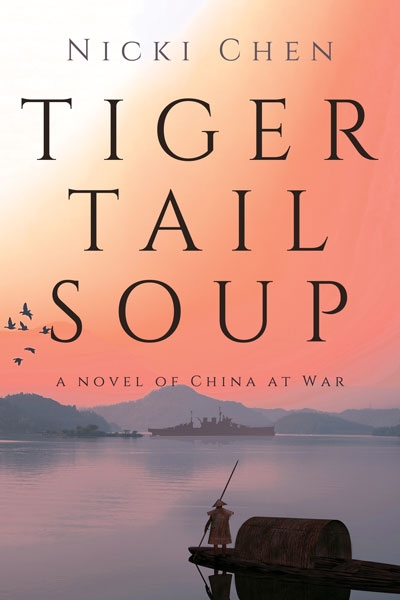Book Review of South China Morning Blues
When I look back on my twenties, I’m amazed at how much I crammed into that decade—and also at how far-reaching the consequences of my decisions were. I shouldn’t be amazed. We’re meant to choose our path in life during those years. And even though we can reinvent ourselves to some extent later, there’s no getting around it, it’s usually during our twenties that we at least make a good start in figuring out who we are and where we’re going.
The characters in Ray Hecht’s new book, South China Morning Blues, are all in their twenties. And to make matters even more challenging, they live in what may be the fastest changing region of the fastest changing country in the world, the Pearl River Delta region in southeastern China, a megalopolis that the World Bank Group considers the largest urban area in the world in both size and population. Hecht, an American, has lived there, mostly in the city of Shenzhen, since 2008. He knows the area well.
The twelve young men and women who tell their stories in South China Morning Blues, live and work in Shenzhen, Guangzhou, and Hong Kong. They’re Chinese, American, Canadian, and African. None of them are quite clear on what they want or how to get it.
The first character we meet, Marco, is a sleazy American businessman who likes to show off and pick up girls. Since he can’t be bothered to learn Chinese, his Chinese protégé, Jackie, takes advantage of him and steals his clients. After losing his job, Marco starts a new business, a club that caters to expats. When he falls in love with and marries a Chinese woman, he’s challenged to become his better self.
Sheila’s parents are from another generation. They don’t understand a modern Chinese career woman like her. Eventually Sheila will realize that even though she’s modern in some ways, the Chinese duty to sacrifice for family obligations is still deep inside her.
Terry is an American-born Chinese, an ESL teacher, a writer, and an alcoholic. To impress his Chinese girlfriend, Ting Ting, he finally cleans up his disgusting apartment. We can only hope that Ting Ting will inspire him to clean up his act too.
These are only five of the twelve characters in South China Morning Blues. They speak in their own voices about their longing, loneliness, and confusion. They tell us about their hunger for adventure, money, love, and sex, and their desire for success and meaning.
Each of them represents an animal in the Chinese zodiac. Marco, for example, is the tiger; Jackie is the rat; Sheila is the hare; Terry is the monkey; and Ting Ting is the Dragon. The author uses the Chinese character for each animal to indicate a change in point of view. If you don’t read Chinese and you want to be sure who is speaking, you might want to make a cheat sheet.
 Hecht doesn’t sugar coat the seamier side of life, and some of his scenes are sexually explicit. As he said in an interview with Jocelyn Eikenburg, “I want to show all sides of real life. Using illegal substances, having irresponsible sex, pushing the boundaries, and making mistakes; these are all things that human beings actually do. And they are interesting things. I believe they are things worth writing about.”
Hecht doesn’t sugar coat the seamier side of life, and some of his scenes are sexually explicit. As he said in an interview with Jocelyn Eikenburg, “I want to show all sides of real life. Using illegal substances, having irresponsible sex, pushing the boundaries, and making mistakes; these are all things that human beings actually do. And they are interesting things. I believe they are things worth writing about.”
Whether you’ve ever traveled to or lived in China, I think you’ll find something new and interesting in South China Morning Blues.
Available for pre-order on Amazon.




A good and comprehensive review.
Merry Christmas, Nicki.
I’ll be heading to Athens for Christmas. Hope the prices of goods in Athens are not eye popping compare to Istanbul (food prices on the European side are on par with London on my recent day trip there; undeterred, I plan to spend a bit of time in Istanbul at the end of January).
Have a wonderful Christmas in Athens. It sounds like a pleasant place to spend the holidays. I’ll be spending the holidays with my daughters and their families.
Sounds like a good read, Nicki. I usually get bored with book reviews but you kept me reading till the end. Wishing you and your family a wonderful Christmas! 🙂
Thanks, Jo. It’s a little racy in places, but the stories show what life is like for young people in the new China. Something different. Merry Christmas to you and your family.
Thanks for the book recommendation, Nicki. I would never want to relive my twenties. I made a mess of things for most of that decade, although I supposed that mess helped shape who I’ve grown up to be.
I wonder which is more decisive, our mess-ups or our successes. Both, I suppose.
Great review and overview of the book, Nicki. It sounds like there are many strands to each character, and that their identities are more complex than they seem. Maybe those around them and the company they keep influence who they are. Our twenties – the time of our lives when anything seems possible to us, and we are full of hope 🙂
When I started the book, I was mainly interested in finding out what it was like to live in those three cities in southeastern China during modern times. But my focus soon shifted to the characters and the challenges for young people in their twenties, some of whom were alone, far from home, and living in a fast changing society. You’re right, anything is possible, but they still have to figure out what they want and how to get it.
Excellent review, Nicki. I feel the same about my 20’s…I was a different person back then.
Back “in the day,” we were in a hurry to get started with our lives. College, job, marriage, children, we crammed it all into that decade with time to spare.
Oh, our 20s. A whole decade of stupid!
Great review, Nicki. The book is in my giant TBR pile.
I’ve been reading a lot of female authors lately, so this was something different for me.
Great review! I love your intro about how our twenties are so defining. Even though I haven’t lived in this area in a couple decades, I could see some people I used to know in some of these characters.
I think Ray has a good future as a writer.
Yes, I do, too!